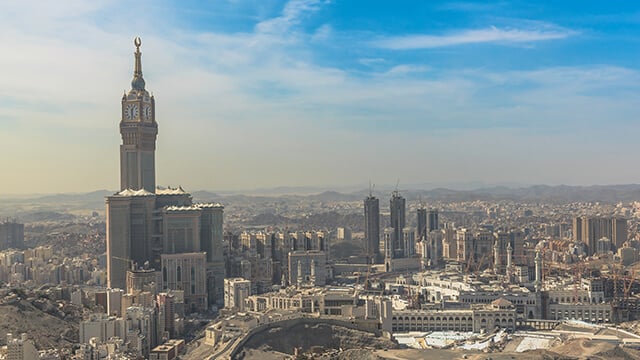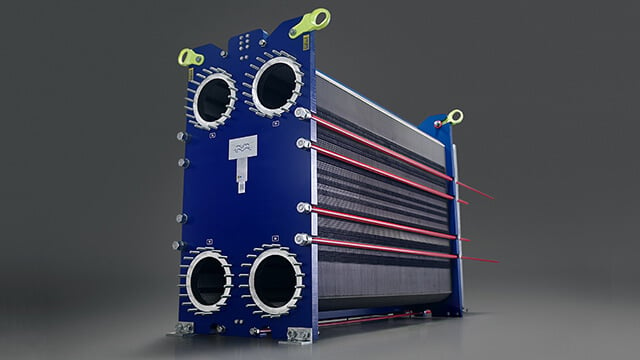Tackling water stress in Saudi Arabia
Alfa Laval is saving more than one million litres of water annually following the installation of water recirculation systems at the Jubail and Yanbu service centres in Saudi Arabia. This water conservation initiative contributes towards Alfa Laval’s target of reusing all water at production sites located in areas of water stress by 2030.
DATE 2025-02-07
Highlighted Technologies
The systems save 90 percent of the water used in hydrostatic pressure tests at the service centres. It was the potential to save this valuable resource in one of the highest water scarcity countries in the world that was a key driver in the project. The initiative contributes towards Alfa Laval's target of reusing all water at production sites in areas with water stress by 2030.
The water is used in the hydrostatic pressure testing (HPT) of gasketed plate heat exchangers, primarily from oil and gas applications in the energy industry. Previously the water was discharged immediately after use but Alfa Laval’s focus on water conservation has led to the development of a recycling process that takes the wastewater through a comprehensive treatment process so that it can be stored and re-used multiple times.
It has a positive impact on the water footprint at the two service centres while also placing a priority on water conservation in one of the highest water scarcity countries in the world, which was a key driver in the project, explains Jacques Boudakian, Regional Service Operations Manager, Middle East & Africa Region.
Walks the talk
“Alfa Laval Middle East & Africa is committed to Alfa Laval’s Sustainability strategy 2030,” he says. “These water recirculation systems demonstrate how our Service Operations organization 'walks the talk' to reduce our environmental impact by safeguarding natural resources.”
The water recirculation system is a four-stage process utilizing sand and cartridge filtration followed by ultra-violet sterilization to remove contaminants – enabling 90 percent of the water used for each to be collected, treated, and pumped back to a 4000 litre tank ready for reuse.
The water conservation system went operational in early November 2021 and will now be used in the HPT of the 170 gasketed plate heat exchanger units on average that pass through the Saudi service centres every year.
“A similar solution was installed at our service centre in Qatar, and it was successful, so we decided to follow in Saudi,” says Syed Zakiuddin, Service Operations Manager in Saudi Arabia. “We have plans to make a similar investment in our Abu Dhabi service centre and we also plan to expand it to our service centre in Johannesburg in South Africa. We will continue to expand and leverage this technology in the remaining service centres in the Middle East and Africa Region to make sure that our operations are as sustainable as they can be.”
A role model for water conservation
Global Service Operations has a vision of becoming a role model for sustainability and water conservation, says Alfa Laval's Head of Global Service Operations.
“To accomplish that, we must treat water as the finite resource and the foundation for all sustainable living that it is. We have set a target to maximize the re-use of water at Alfa Laval’s service centres – especially in locations where water is scarce. Our success with the use of pressure test water is a first step and a foundation that we will build on to implement new processes and technologies to reduce the water footprint at our service centres around the world.”
Water consumption in Saudi Arabia
Being a severely water stressed country, Saudi Arabia has set a target to reduce daily water consumption by 2030 from 263 litres per person to 150 litres. Alfa Laval’s water saving contributes towards the country’s targets of reducing daily water consumption for 6,666 people.
Water stress
According to UN Water: when a territory withdraws 25 percent or more of its renewable freshwater resources - it is said to be 'water stressed'. Water scarcity can mean limited availability due to physical shortage, or problems with access to water due to the failure of institutions to ensure a regular supply or a lack of adequate infrastructure. Water scarcity already affects every continent.


